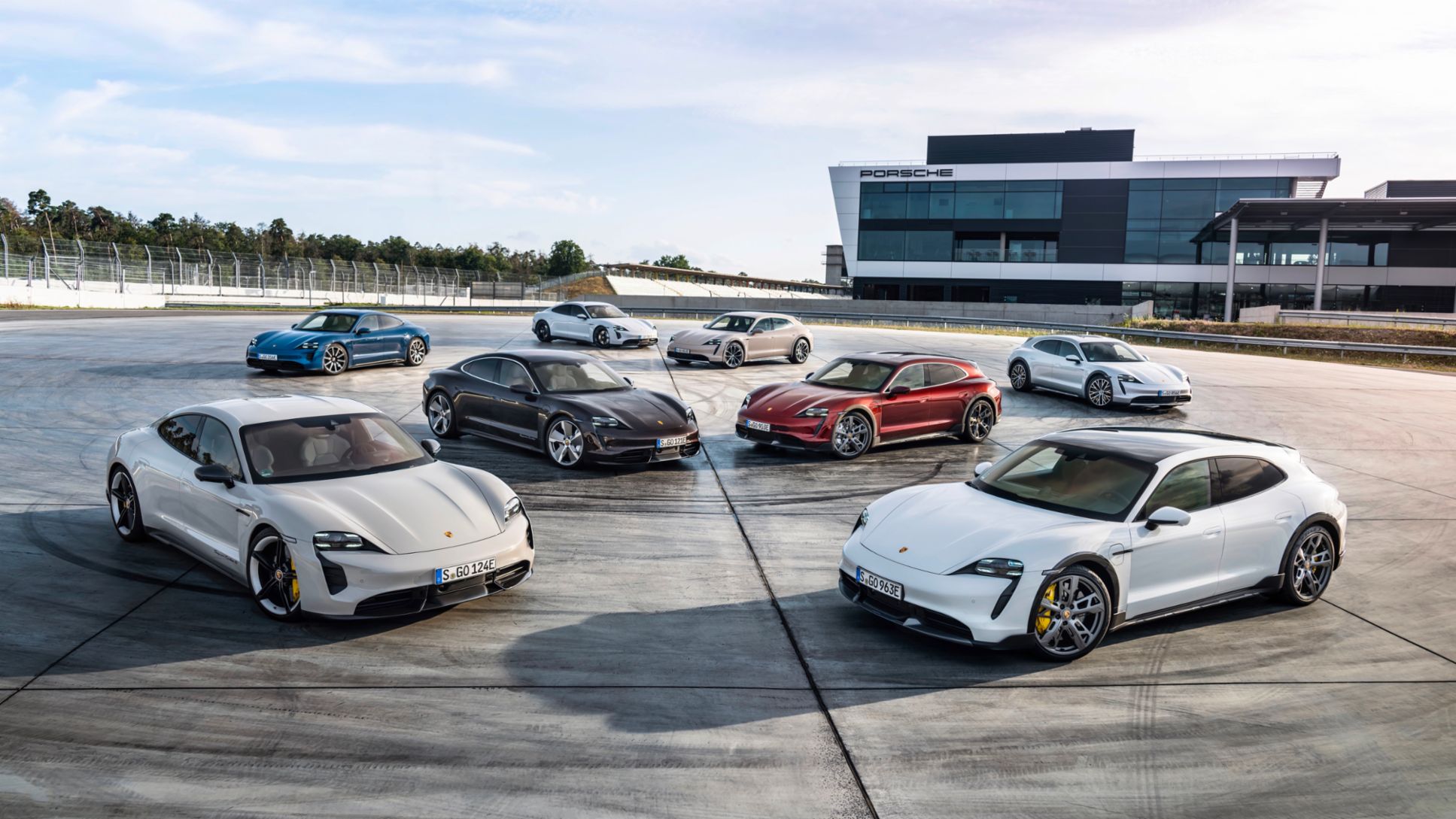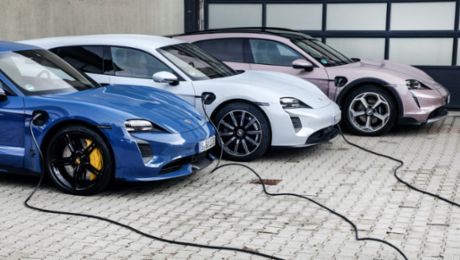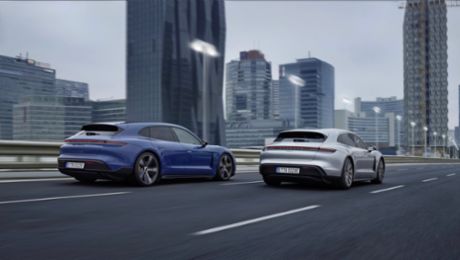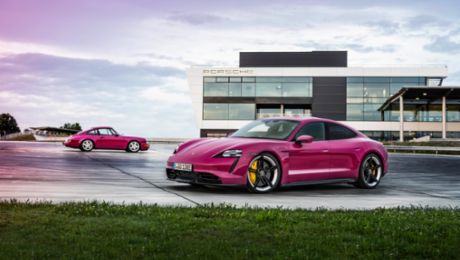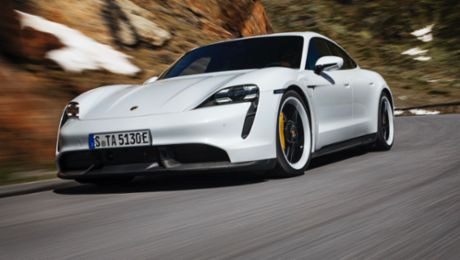Depending on when their vehicle was delivered, customers will benefit from, among other things, an increase in powertrain efficiency as well as new functions and improvements in the Porsche Communication Management (PCM), Porsche Connect and assistance systems. The update also includes the option of having individual functions and equipment unlocked after purchase (function on demand, FoD) and will enhance the over-the-air (OTA) update capability of all Taycan models. The update is free for customers, and can be carried out during a visit to a Porsche service workshop.
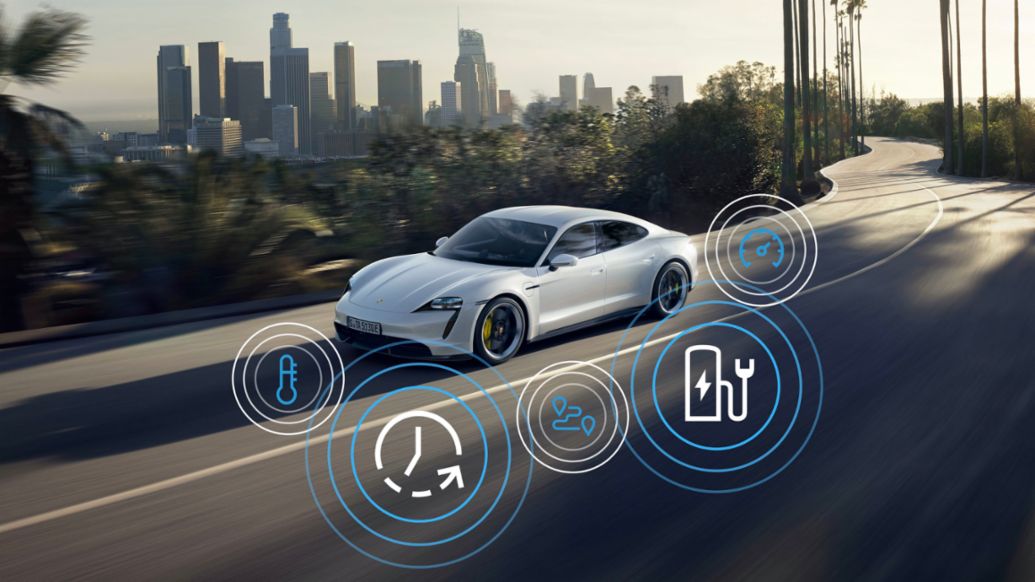
“This campaign will allow our customers to benefit from the continuous further development of the Taycan. We have extensively optimised the model series in almost every respect since 2019,” says Kevin Giek, Vice President Model Line Taycan. “New functions have been added and others have been revised or tweaked to further enhance the customer experience. Following this update, anyone driving a Taycan from early in the car’s production run will be pleasantly surprised by how much has developed on the vehicle side since then.” Internally, Porsche refers to this as the ‘uPdate’, because the 2023 model year, which started in July 2022, bears the letter ‘P’.
The precise scope of the update, and the duration of the necessary workshop visit, depend on the specific software status of the Taycan in question. The older the car is, the more improvements and innovations will be installed.
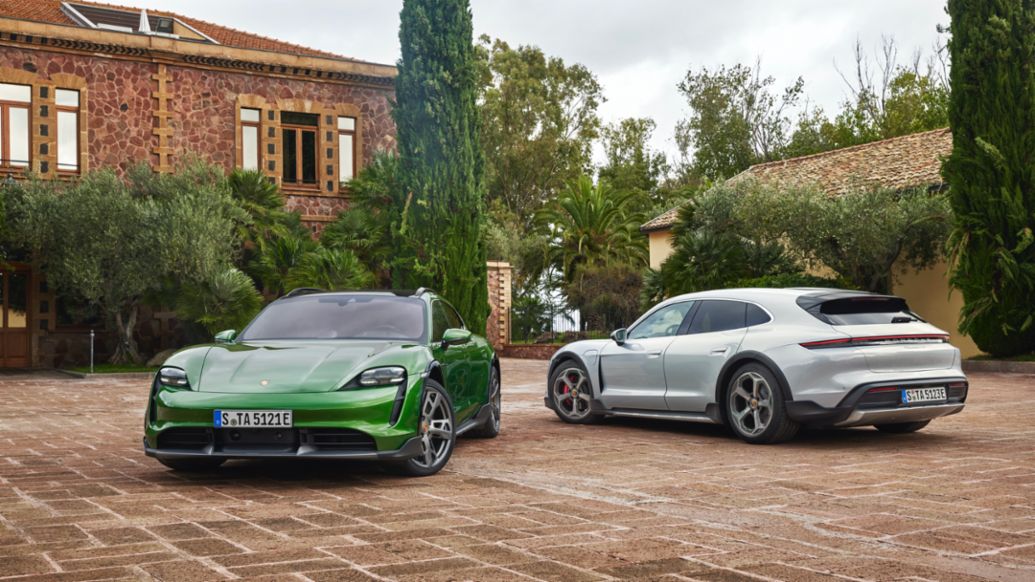
The 22 kW onboard charger has now also recently become available for retrofitting1. Customers can combine this retrofit at their own expense with a workshop visit for the software update. With up to 22 kW of charging capacity, the more powerful variant charges the battery significantly faster. In Europe and North America, the retrofit also includes activation of the Plug & Charge function. This enables convenient charging and payment without a card or app. As soon as the charging cable is plugged in, the Taycan establishes encrypted communication with the Plug & Charge-compatible charging station. The charging and payment processes then start automatically.
The most important updates at a glance
- Powertrain: in the ‘Normal’ and ‘Range’ driving modes in all-wheel drive models, in partial load operation the front electric motor is almost completely disconnected and de-energised. While coasting and at a standstill, both axles are free of drive torque. The electric freewheel reduces frictional drag losses and increases the vehicle’s range. The all-wheel drive indicator is now shown as an energy-flow indicator in the central display. This makes the current operating status of the drives easier to see. The energy recuperation strategy has also been optimised. The automatic recuperation setting, for example, is retained even when the driver changes the driving programme. Added convenience for the customer. These improvements are relevant for Taycan models from the 2020 and 2021 model years.2
- Thermal management: better conditioning of the battery, especially at low outside temperatures, enables the Taycan to be rapidly charged more frequently overall and over a wider range of battery charge levels (SoC). The waste heat from the electrical components, for example, is used even more than before to temper the battery. For 2020 and 2021² model-year Taycan models, this enables greater range and shorter charging times.
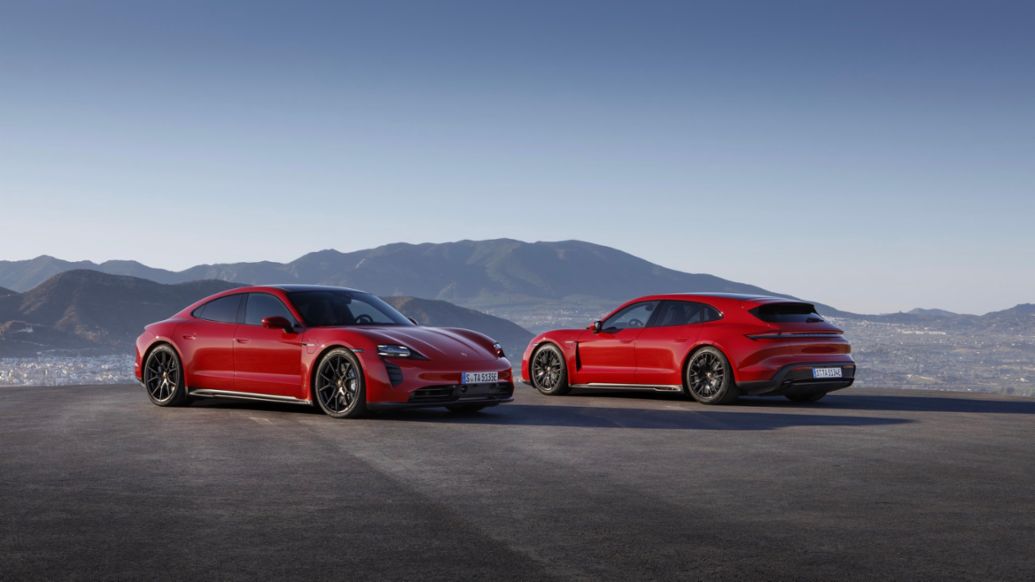
- Porsche Communication Management (PCM) and Porsche Connect3: new functions, a colourful tile design on the start screen and even greater ease of use are the hallmarks of the model upgrades in this area. In Taycan models produced in the 2020 and 2021 model years and up to mid-February 2022, the update optimises the voice control and integrates the Spotify® app. Android Auto® is available wirelessly. Charging stations can be filtered and selected in the navigation system based on charging capacity. Drivers of 2021 model year Taycan models with a head-up display can look forward to the optimised view of the navigation map, among other elements. The display contents have been expanded. For all Taycan models prior to the 2023 model year, the on-board operating instructions can now also be used via voice control.
- Assistance systems: some systems can now support the driver in even more situations. The sensors of the ParkAssist function now work with a greater range. The search for available parking spaces has been improved as well, so that now even smaller spaces are offered to the driver as an option. These enhancements will benefit Taycan models from the 2020, 2021 and 2022 model years.
- Unlocking functions after vehicle purchase (FoD): all Taycan models of from the 2020, 2021 and 2022 model years are now also eligible, on request, for the keyless opening function (comfort access) for the doors and tailgate. The option of over-the-air (OTA) software updates has now also been further expanded for the new model year.
Info
1 Currently no offer for South Korea and Canada.
2 Already standard in later models.
3 The availability of Connect depends on the model year of the vehicle as well as the services available in your country.
